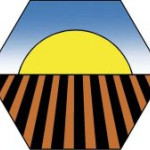- 産業: Earth science
- Number of terms: 26251
- Number of blossaries: 0
- Company Profile:
An international scientific society that fosters the transfer of knowledge and practices to sustain global soils. Based in Madison, WI, and founded in 1936, SSSA is the professional home for 6,000+ members dedicated to advancing the field of soil science. It provides information about soils in ...
Bacteria able to live symbiotically in roots of leguminous plants, from which they receive energy and often utilize molecular nitrogen. Collective common name for the genus Rhizobium.
Industry:Earth science
A udic soil moisture regime in which water moves through the soil in all months when it is not frozen.
Industry:Earth science
Pertaining to earth material transported and deposited by the wind including dune sands, sand sheets, loess, and parna.
Industry:Earth science
Mollisols that have no argillic or calcic horizon but that contain material with CaCO3 equivalent >400 g kg-1 within or immediately below the mollic epipedon. Rendolls are not saturated with water for periods long enough to limit their use for most crops.
Industry:Earth science
P<sub>2</sub>O<sub>5</sub>. Designation on the fertilizer label that denotes the percentage of available phosphorus reported as phosphorus pentoxide.
Industry:Earth science
Glaebule composed dominantly of clay minerals with continuous and/or lameliar fabric, and sharp external boundaries.
Industry:Earth science
Accumulations of fine-textured material, such as separated in placer mining and in ore mill operations; may be detrimental to plant growth and are usually confined in specially constructed basins. A also miscellaneous area.
Industry:Earth science
Inceptisols formed in cold or temperate climates and that commonly have an ochric epipedon and a cambic horizon. They may have an umbric or mollic epipedon <25 cm thick or a fragipan or duripan under certain conditions. These soils are not dominated by amorphous materials and are not saturated with water for periods long enough to limit their use for most crops.
Industry:Earth science
A surface horizon of mineral soil that is dark colored and relatively thick, contains at least 5. 8 g kg-1organic carbon, is not massive and hard or very hard when dry, has a base saturation of >50% when measured at pH 7, has <110 mg P kg-1soluble in 0. 05 M citric acid, and is dominantly saturated with divalent cations.
Industry:Earth science
Fe5O7(OH)•4H2O. A dark reddish-brown, poorly crystalline iron oxide mineral that forms in wet soils. Occurs in concretions and placic horizons and often can be found in ditches and pipes that drain wet soils.
Industry:Earth science
